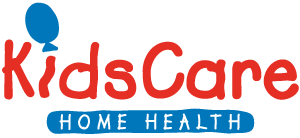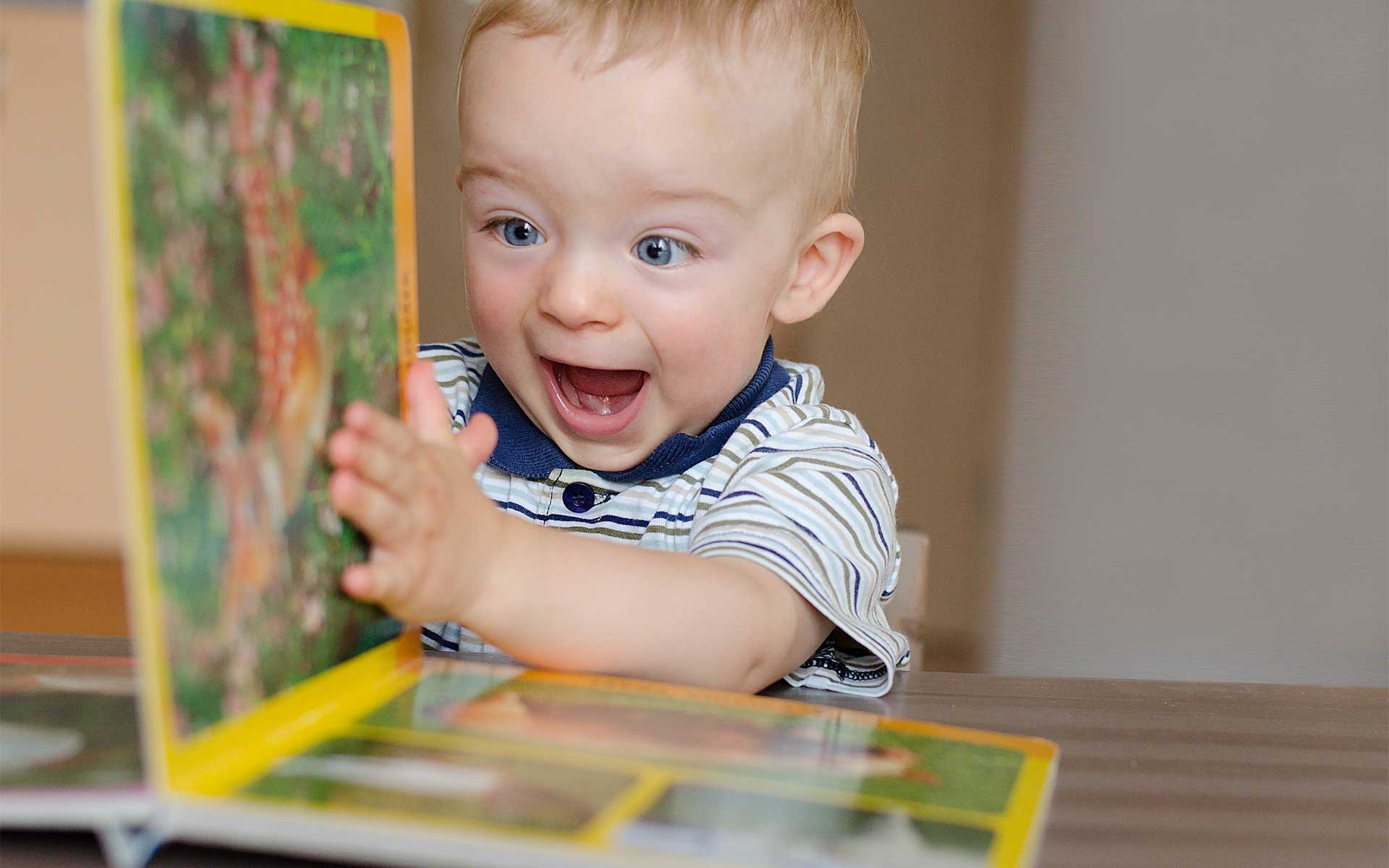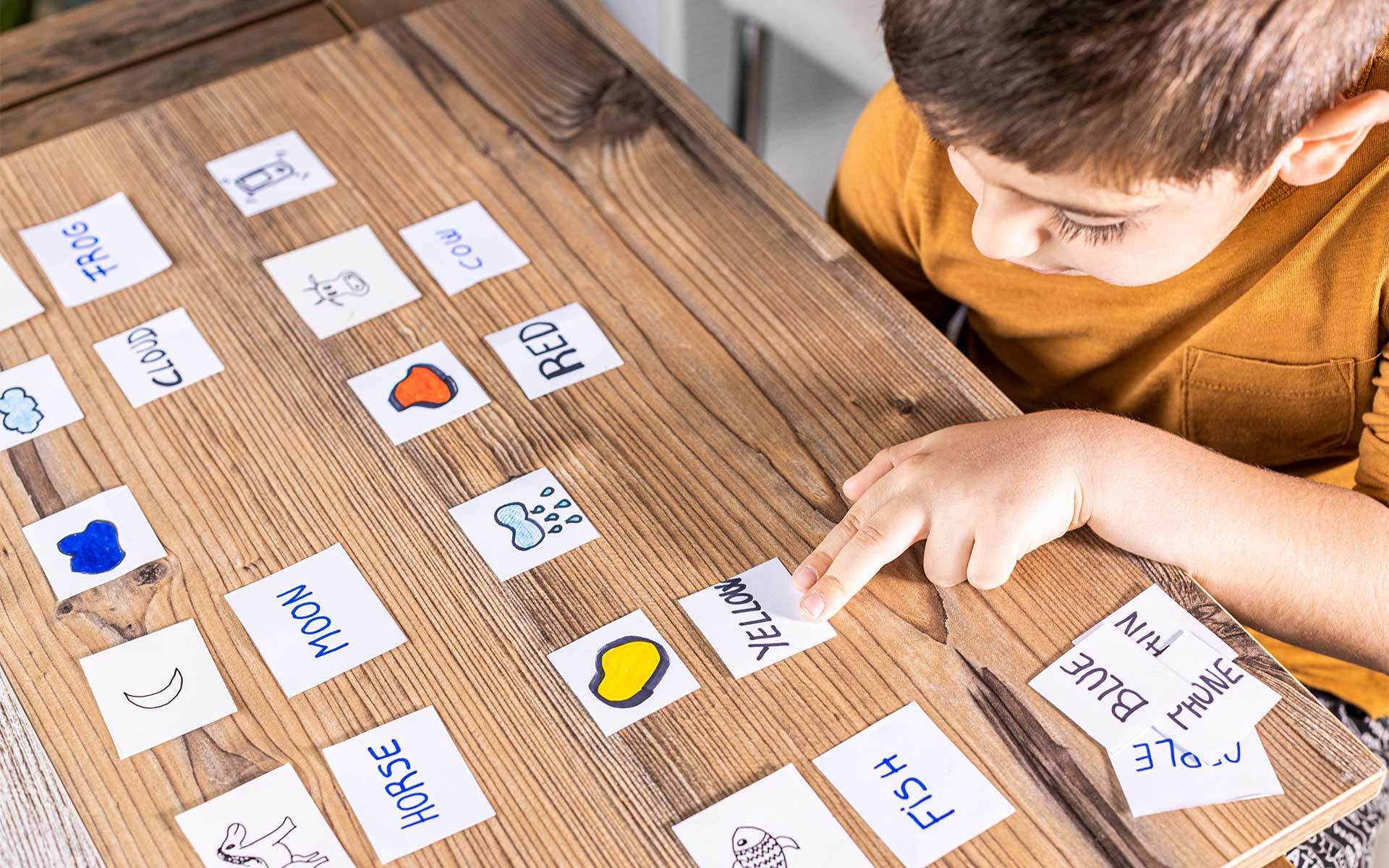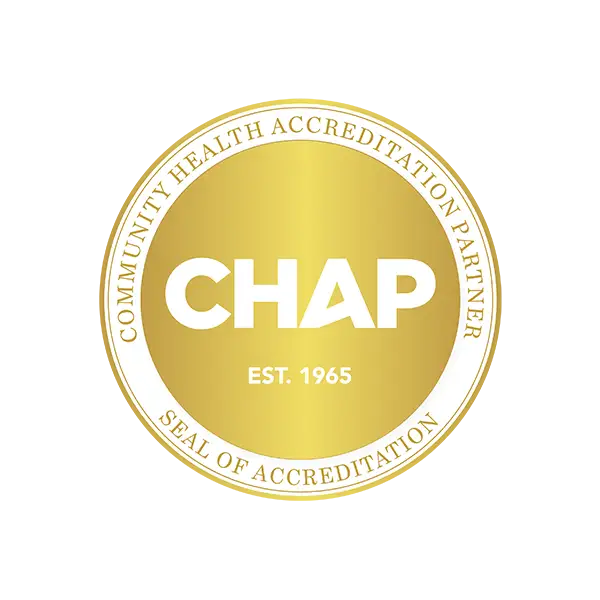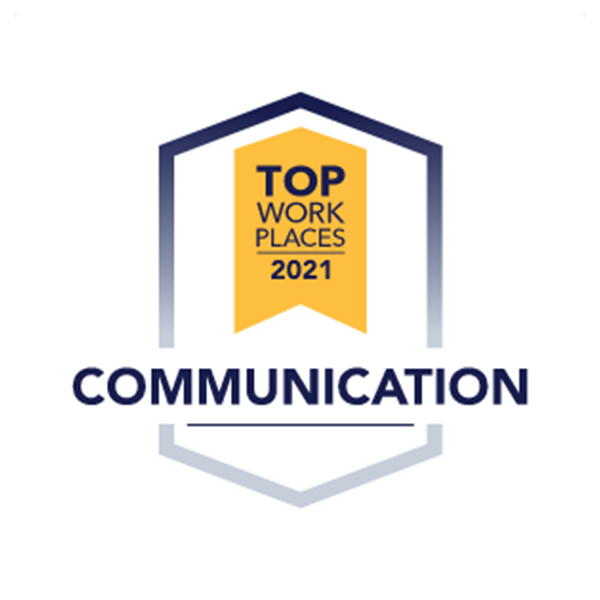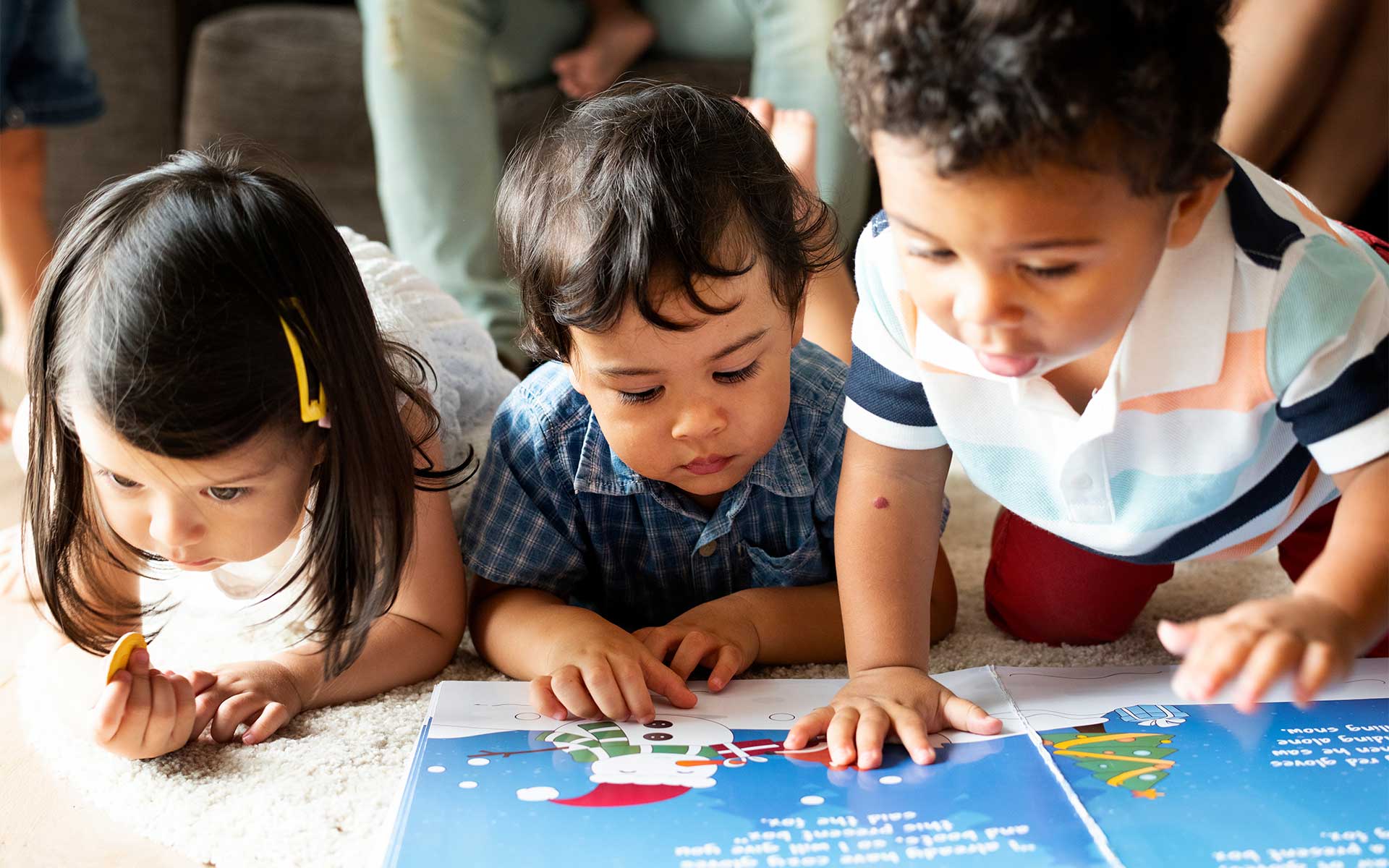
Language ability has been argued by theorists for years, specifically if it’s innate (natural) or learned. One theorist argued that language is an innate ability (Chomsky,1959), and another argued that it is acquired by reinforcement and repetition (Skinner, 1957). Yet, another theorist argued that it was part of the overall development (Piaget, 1969), while another argued that it is learned through interaction (Bruner, 1975).
While theorists continue to debate the subject, this blog focuses on the importance of language development in early childhood, including how parents and caretakers can encourage the process with engaging activities that promote language development and make learning fun.
Why Are Book and Reading Activities Important for Kids Language Development in Early Childhood?
Language is the foundation for our social interactions. Therefore, most children spend the first few years of their lives learning basic listening, speaking, reading, and writing skills to prepare them for the world. Language development also supports brain and cognitive development. Studies have shown that having a large vocabulary increases creativity and helps people develop new ideas.
In other words, language development supports children’s development overall, especially during the first years of life. In fact, studies show that children who are read to and spoken with regularly during early childhood will have a more expansive vocabulary and stronger literacy skills overall than those who are not.
Stages of Language Development in Children
There are six main stages of language development in children, from infancy to about 30 months. Here is a brief overview of each stage:
Pre-linguistic Stage
(0-5 months) Children communicate with sounds, like crying or cooing, while their vocal tracts develop.
Babbling Stage
(6-9 months) Children begin to babble, making noises and syllables that aren’t yet words, while the mouth muscles and teeth grow in preparation for more advanced talking.
Holophrastic Stage
(9-18 months) Children’s language skills are usually advanced enough for them to say single words that describe objects or identify their basic needs, like “mama” or “dada.”
Two-Word Stage
(18-24 months) Children begin saying two-word sentences that typically have some meaning as they are grouping together words learned during the holophrastic stage. Ex: “more food” or “kitty small.”
Telegraphic Stage
(24-30 months) Children can speak phrases that are not only longer but also have more than two elements. Typically, grammar isn’t correct, but the phrases are understandable. They also develop the ability to understand basic instructions, including two-part orders like “go to your table and get your books.”
Multi-Word Stage
(30+ months) Children can build increasingly complex sentences that help them communicate their thoughts better. They also start to incorporate morphemes to make more semantically sound phrases, ex., using the word “cats” rather than “cat” when referring to more than one cat.
How Can a Book Activity for Kids Help Language Development?
As children progress through these language development stages, parents are encouraged to nurture their learning with activities to encourage language development, like reading! Creating a learning-friendly environment with book activities for language development can help accelerate your toddler’s language development milestones and start preparing them for school. It will also encourage growth in other areas, such as increased vocabulary, imagination, dialogue, and attention span.
Increase Vocabulary
Children’s books provide toddlers with stories told in short sentences that are rich in vocabulary. They also include pictures that support what the words are saying, so children can connect the words’ meaning with visual examples. Also, children’s books tend to repeat specific words, which is excellent for strengthening language development.
Develop Imagination
As books tell a story, the imagination is triggered to follow. Children’s books often feature fun and fantastical places and characters, like spaceships and martians or castles and princesses, that require imagination to comprehend. Also, books often feature places, people, and things toddlers may not have seen before, so their imagination has to fill in the blanks.
Promote Dialogue
Another reason accelerating language development through picture book reading is great is the conversations that result. As you read with your toddler, she might ask questions about a part of the story or be encouraged to talk about something that happened in her life that parallels what you are reading together. These conversations are helping her grow and expand her dialogue.
Joint Attention
Joint attention or shared attention is the shared focus of two individuals on an object, like a book, and it is important for many aspects of language development, including comprehension, production, and word learning. For example, you are practicing joint attention every time you point at a picture in the book to get your toddler’s attention as you say the word associated with the picture. This activity provides children with information about their environment, allowing them to establish a connection between the spoken word and the picture.
Interesting Book & Kids Reading Activities for Language Development
Parents and caregivers play a big role in children’s speech development during the first few years of life. The more you talk to your child and share information about the world around them, the more they will absorb and learn. Just remember to speak clearly, be patient, and repeat words and phrases often.
There are plenty of simple activities that you can do with your child to develop and support language skills, like the six we’re sharing next. Most of them involve using books for language development; however, some incorporate other activities like singing and imaginary play.
Storytelling
Storytelling is one of the more engaging and entertaining activities to encourage speech and language development during early childhood. Your storytelling can involve an imaginary character or place, or it can be a story about someone your child knows, like a relative.
You can also talk about your day in the form of storytelling by narrating your activities, like “I’m washing this plate, then I am going to dry it with this towel, and put it in this cabinet.” Your toddler can listen to your story and watch it unfold as you show them what you are doing.
Sing Songs
Singing songs is great for encouraging language development in early childhood. Stick to songs they are familiar with, such as Itsy Bitsy Spider, and encourage your toddler to sing along. Also, pantomime the action in the song to give your toddler a physical reference for what the song is describing.
Labeling Game
The labeling game does not necessarily involve a book, but it does involve written words and identifying the corresponding objects to encourage language development. It works by writing the names of common items around the house on flashcards, then asking your toddler to place the card on the item. As you progress, you can start adding adjectives, like “red” in front of “chair.” You can continue to build on this game by asking them to come up with more adjectives for items, as well.
Word Chain
This is a fun activity that involves making flashcards with nouns and adjectives/adverbs on them, such as car and cat, then red and soft. Take the cards, say 4-5 nouns and 4-5 adjectives or adverbs, and help your child to make a ‘word chain’ using one noun and as many adjectives and adverbs as possible. For example, if the word is ‘car,’ you may select words like ‘red,’ ‘fast,’ or ‘noisy’ to create a word chain.
Picture Book Spotting
Picture books are perfect for language development activities! As you look at and read the picture books, take plenty of time to point out objects and name them. Encourage your child to repeat the words back to you. As they become more familiar with the words and pictures in the book, encourage them to share more. For example, if you point out a picture of a big orange cat, you can say, “The cat is big! What color is he?”
Role-playing
Role-playing is a great way to encourage your child’s imagination and help them learn new words. It can involve real or imaginary props and is a great way to introduce new vocabulary words through action and play. For example, if you are playing “chef” with an imaginary or play kitchen, include as many chef-related words and props as possible, like baking, pots, pans, spoons, etc. Talk to your child about the action you are creating, and let their curious minds soak it up!
Dr. Seuss famously said, “The more that you read, the more things you will know. The more that you learn, the more places you’ll go.” It perfectly summarizes why language development is so critical in early childhood. Parents and caregivers can help children achieve all the stages of language development by talking and reading to children regularly. They can also encourage dialogue during everyday activities, book activities, or play, like storytelling or role-playing.
If you require professional assistance with language development activities for your child, KidsCare Home Health is here to help. Our pediatric speech/language pathologists can recommend speech therapy books for toddlers and more. We specialize in pediatric therapy services for children in the comfort of their homes and work with families across the country. Contact us today!
